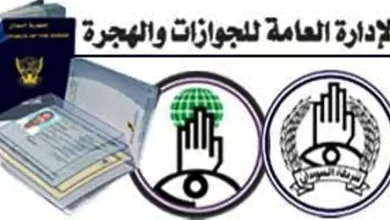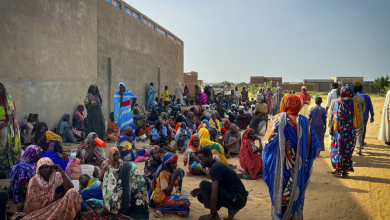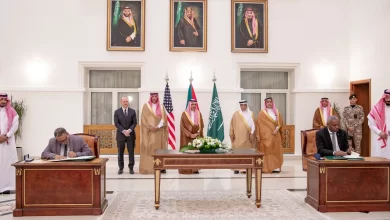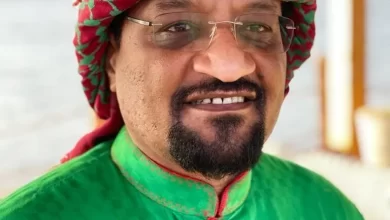Demonstrations in London against SAF’s use of chemical weapons against civilians

Under the slogan “Stop Chemical Weapons,” Sudanese demonstrators and activists in London expressed their solidarity with the millions of children, falling victims of the ongoing war in Sudan.
A number of demonstrators carried banners depicting children as the weaker party in Sudan’s war, and held signs reading “Let our childhood breathe.”
The demonstrators also raised Sudanese flags, while some wore masks and yellow protective clothing to highlight the dangers of chemical attacks.
During the protest, banners were also raised in Arabic and English, bearing a joint message addressed to the Arab and international communities, urging both to push for peace negotiations.
“Enough with the injustice! The world must act immediately!” shouted one protester, his voice filled with grief, expressing everyone’s hopes for international intervention to stop these atrocities. Sudan has been bleeding for years due to the conflict and is suffering a horrific humanitarian crisis, hence, these protesters came to remind the world that silence isn’t an option.
This demonstration came more than a month after an international conference on Sudan was held in London, calling for an immediate and permanent ceasefire and an end to the conflict.
The conference was organized by the United Kingdom, France, Germany, the African Union, and the European Union, with the participation of ministers from (14) different countries, in addition to representatives of international and UN agencies.
During the conference, participants called for support for the transition to a civilian government elected by the Sudanese people, as well as an end to any foreign interference that exacerbates tensions or prolongs the war.
The United Kingdom and the European Union pledged hundreds of millions of dollars to alleviate the suffering in Sudan.
They also called for rapid, safe, and unhindered humanitarian access to all areas in need, by all necessary means, in accordance with the commitments contained in the Jeddah Declaration of Commitment to Protect the Civilians of Sudan, and in accordance with the International Humanitarian Law as well.
Chemical Weapons and Sanctions
In January (2025), four senior US officials told the New York Times (NYT) that “The Sudanese Armed Forces (SAF) had used chemical weapons on at least two occasions against the Rapid Support Forces (RSF) led by Mohamed Hamdan Daglo (Hemedti).”
According to the newspaper, these chemical weapons had been deployed in remote areas of Sudan and had already been used, however, US officials feared they could be used in densely populated areas.
According to the same source, the use of chemical weapons crossed new boundaries in the war between the Sudanese Army and the Rapid Support Forces.
Two officials familiar with the matter stated -at the time- that the chemical weapons used was -apparently- “Chlorine gas.”
Two US officials, who requested anonymity to discuss sensitive security matters, stated that knowledge of Sudan’s chemical weapons program was limited to a small group within the Sudanese Army.
The chemical weapons revelations came as the United States announced sanctions against the Commander-in-Chief of the Sudanese Army, General Abdel Fattah Al-Burhan due to documented atrocities committed by his forces, including the indiscriminate bombing that targeted civilians, in addition to the use of starvation as a weapon of war.
The US Treasury Department stated, “Under Al-Burhan’s command, the Sudanese Armed Forces’ war tactics have included indiscriminate bombing of civilian infrastructure, attacks on schools, markets, and hospitals, as well as extrajudicial executions.”
In response, the Sudanese Foreign Ministry described the US sanctions against Al-Burhan as “immoral,” sharing that they lacked “the most basic foundations of fairness and objectivity,” and that the decision to impose them “demonstrates nothing but confusion and an apparent lack of a sense of justice.”
Although chemical weapons weren’t mentioned in the official sanctions notice, several US officials have stated they were a major factor in the decision to act against Al-Burhan.
It is worth noting that the conflict in Sudan has caused the world’s worst humanitarian crisis, claiming the lives of up to (150,000) people and displacing more than (11 million), in addition, Sudan is suffering through the worst famine the world has witnessed in decades.





